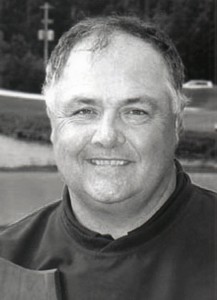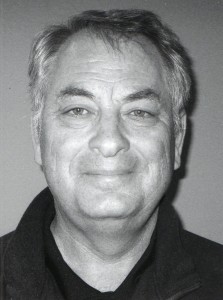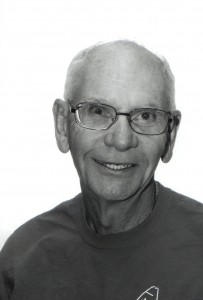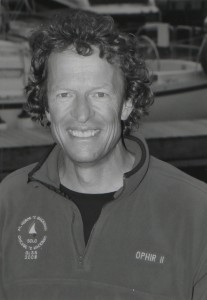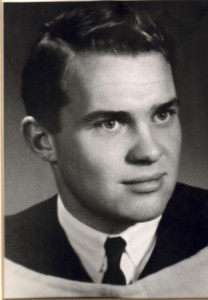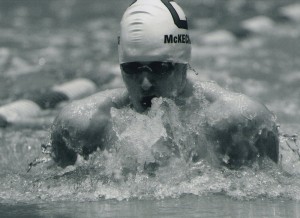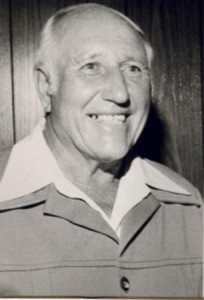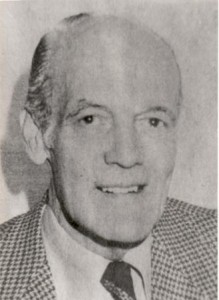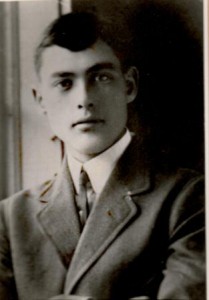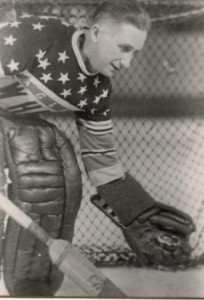 Norm Burmister was the only Collingwood born goalkeeper to make the professional ranks. He was born too soon. In this era of expansion, Normie would have no trouble catching a spot in the N.H.L.
Norm Burmister was the only Collingwood born goalkeeper to make the professional ranks. He was born too soon. In this era of expansion, Normie would have no trouble catching a spot in the N.H.L.
He learned his trade on the West End mill ponds and made the Collingwood Junior O.H.A. club at the age of fifteen. One of his team mates was Reg Noble, Collingwood’s contribution to the National Hockey Hall of Fame. Another was Sailor Jim Herberts, one of the most colourful players with Boston, Toronto and Detroit, in the days when colourful hockey players were abundant.
He performed in the nets for several Collingwood junior teams until his career was interrupted by World War 1. He served in the Canadian Army for three years and on his return hitched up with intermediate and senior teams in Welland and Niagara Falls.In 1926 he turned in professional with the New York Americans and was sent to New Haven for seasoning.
His big chance came in 1928 when he was slated to move up into the “Big Time” with the Amerks. But cruel fate stepped in and deprived Normie of his one big opportunity. Joe Ironstone was a hold-out and refused to come to terms with Big Bill Dyer, the racketeer owner of the New York team. Dyer immediately sent for Burmister, who was in training camp at Niagara Falls. On the day before he was to report, Normie broke his shoulder in a pick-up softball game. He never got the chance again and finished his professional career with New Haven in the Can-American League and Guelph and Stratford in the old Can-Pro League.
While with New Haven, he played with two other Collingwood boys, his brother Roy and Abbie Hughes. Roy and Abbie both made the N.H.L. with New York Americans.

